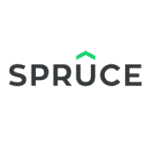WARNING: This article contains radical candor not customary in business
By Howard Turk
As if the high interest rate/low transaction volume storm facing the title industry was not enough, we are now grappling with headwinds stirred by politically motivated government agencies.
My perspective on these challenges is unique, having witnessed firsthand the impact of both having and not having title insurance on consumers and real estate settlement processes internationally and domestically.
I started out my career building and running a high-volume real estate conveyancing law firm in Canada. Title insurance was not available in Canada back then. My firm was the highest volume practice in the country, so it was natural that First American knocked on my door when they began exploring the international market. The benefits of insuring title (as opposed to my ‘opinion’) were so obvious to me that I sold my firm (my first M&A transaction!) and joined them. That kicked off a fulfilling career being a part of helping design title insurance products and teaching lenders, lawyers and consumers about the benefits of title insurance in markets where title insurance did not exist. My career took me beyond Canada and into the UK and Australia before accepting a Head Underwriter leadership role with First American in California 17 years ago. I left First American to establish Turk & Co about 15 years ago and look back on my time at First American fondly. Everything we do in M&A for the title industry benefits from the experience I and my team have had in the title industry.
From the standpoint of consumer and lender interests, title insurance signifies progress. It streamlines processes, making them more efficient and cost effective (yes, you read that right-less expensive when all factors are considered).
Thoughts from experience below:
1. Regulator: “A lender’s policy does not protect the consumer so the consumer should not pay for it.”
a. Reality: The lender does not have to lend. They do not have to allow the consumer the privilege of obtaining a loan. If they decide to make a loan to a consumer they want to get paid back -and even earn a profit. (I know – crazy idea!). The lender is often not comfortable merely accepting the consumer’s word that they will repay the loan. They want some collateral – perhaps something significant like the house. That seems fair. The problem is that the rights the consumer has to the house may not be what they think it is. Moreover, the lender wants to know that the rights it has to the collateral are pristine and as represented to them. Since trust seems to be insufficient in this type of transaction the lender tells the consumer that they will provide them with a loan if they can provide some guarantee that in the event of a default the lender can look to the security provided. That’s the title policy (lenders policy). The consumer pays for it because THEY WANT THE LOAN. The benefit to the consumer is that they get the loan.
2. Regulator: “Title insurance is expensive. Let’s get rid of it and save the consumer all that money. We’ll use a lawyer to provide an Attorney Opinion Letter (AOL) instead. That worked in the 1800s, of course it will work now.”
a. Reality: An AOL costs less than a title insurance process because it offers less. The problem is that what’s missing can create a financial disaster. An AOL is nothing more than an Attorney’s opinion. It’s not insurance and does not cover hidden title defects such as undisclosed tax liens, falsified records in the title chain and so much more. It all sounds so good and would probably work IF and ONLY IF we lived in a world where every borrower can be trusted to repay their loan in full and on time and every home put up as collateral has no defects. Fraud? What fraud? Some economies are false.
b. A little more reality: Let’s take a closer look at how insurance works and how tinkering with its natural balance can have unintended consequences. Insurance is straightforward: a risk is identified, the odds of that risk occurring are calculated along with the costs to put the insured(s) whole, and this cost is then spread among a pool of policyholders (plus a markup for profit). The larger the pool, the lower the cost per policyholder (the insured). Conversely, reducing the size of the pool increases costs for each member. Now, let’s apply this to the AOL programs. If the GSEs decide that certain loans don’t need traditional title insurance but can instead be covered by a lower-cost AOL product, which loans do you think would be included? Likely the lowest-risk loans. And what do these lower-risk loans have in common? I’m guessing that they are often associated with housing in higher-income areas, held by individuals with better credit scores, and with better loan-to-value ratios etc. From the perspective of assessing title risk, a typical $10 million home in Beverly Hills presents a very different title risk profile compared to a lower-cost home in an inner-city neighborhood. If the wealthy homeowner in Beverly Hills benefits from the lower-cost AOL product, they are not contributing to the overall ‘pool’ of risk. As a result, the pool becomes smaller, and the remaining risk is spread among a smaller audience, leading to increased costs for those who are least able to afford it. In essence, this scenario creates a situation where the rich can proceed with lower-cost transactions, while those less affluent face higher costs. This shift in the natural balance of insurance can empower predatory, unfair, and discriminatory practices, which is concerning from both a social and economic standpoint. What is so disappointing in all this is that the AOL ‘programs’ are nothing more than a form of adverse selection. Insurance 101 teaches us that adverse selection will mess up any insurance program -something regulators should be considering.
Back in the day my law firm had a close relationship with the bank that had the largest home mortgage lending business in the country (and now more branches in the US than in Canada). First American was getting nowhere in terms of obtaining their approval to accept title insurance instead of a lawyer’s opinion with this bank. We were a team and I wanted to help. I remember vividly meeting my old friend (their senior counsel) in a boardroom so high up in a tower it felt like we could see the world. My task was to get him to ‘see the light’ and approve our policy instead of merely relying on a lawyer’s ‘opinion’. We could see the leafy neighborhoods just outside the city core. I asked my friend to look outside and tell me how many houses he saw that were on fire. He looked puzzled but did as I asked. The answer was none. I then asked him to guess how many houses had fire insurance. The answer of course was all (banks would not lend using a house as security unless the house had a fire policy with the bank as a named insured). Why would you suppose every house had fire insurance even though none were on fire? The answer of course is that when there is a claim, it could be catastrophic. He then understood that title insurance is also like that. Titles sometimes fail -but the debt remains since it operates independent of the security. Title Insurance protects against unforeseen title issues that could have severe (catastrophic) financial implications.
We cannot and should not ignore these headwinds. I like to think that no regulator ever gets up in the morning wanting to undo progress, harm consumers, promote discrimination and try to ruin an entire industry. The realist in me knows that bad laws do pass sometimes, and we then have the burden of dealing with the repercussions of poorly informed decisions.
What does all this mean to an Investment Bank focused on title and real estate M&A like us?
One result of all this is that we are seeing a lot of confused title agency owners these days. The headwinds add to the existing uncertainty of our current economy. Market dynamics are changing fast. Some recognize that economic cycles can last years and wonder how long they can hold on until the market corrects itself. They’ve cut all they can, and their cash reserves have been depleted. Succession planning is critical and with all that is going on today we see many accelerating the plan for ‘what is next’ for the business they founded or grew. This is a big deal and worth planning for.
There are other firms-mostly larger-who are sitting on cash right now and have the patience and fortitude to play the long game. They will win. We’ve been building relationships with these guys for years. They are buying market share and will absolutely reap the benefits of their patience in the long run. Consolidation is very real. It is likely that the number of independent firms will shrink, and we will be left with a very different marketplace of larger more established firms with advanced technology. Our (proprietary) list of qualified buyers has never been as robust as it is now.
In response to the challenges facing the title industry today, we are initiating a series of blogs written with the intent of helping independent title agencies position themselves for success in a M&A process. In doing so, they can also monetize their business in a superior fashion, or simply better weather the current storm.
Every title agency does well to fully understand what elements of a title business buyers really value these days.
Our perspective is not academic. Turk & Co has successfully closed many title agency transactions and also sold Underwriters as well as businesses which support the title industry. This experience serving both buyers and sellers provides unique insight. We believe in sharing this knowledge to benefit the industry as a whole.
We realize that not all title agencies can afford to wait for this information. Time is not everyone’s friend. If you need immediate answers or assistance, please reach out to us at , or call us at 310 294 9199.
-Howard Turk




















 For More information
For More information